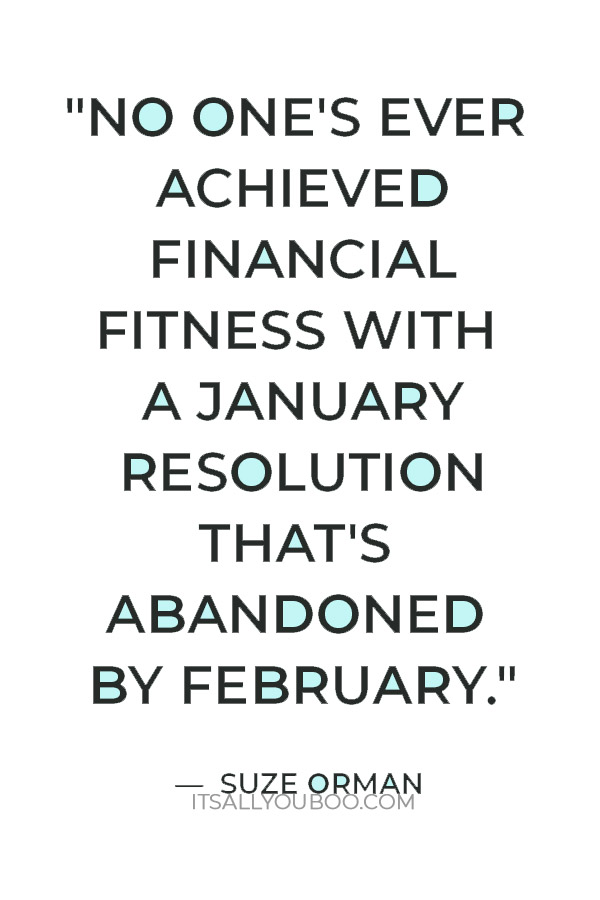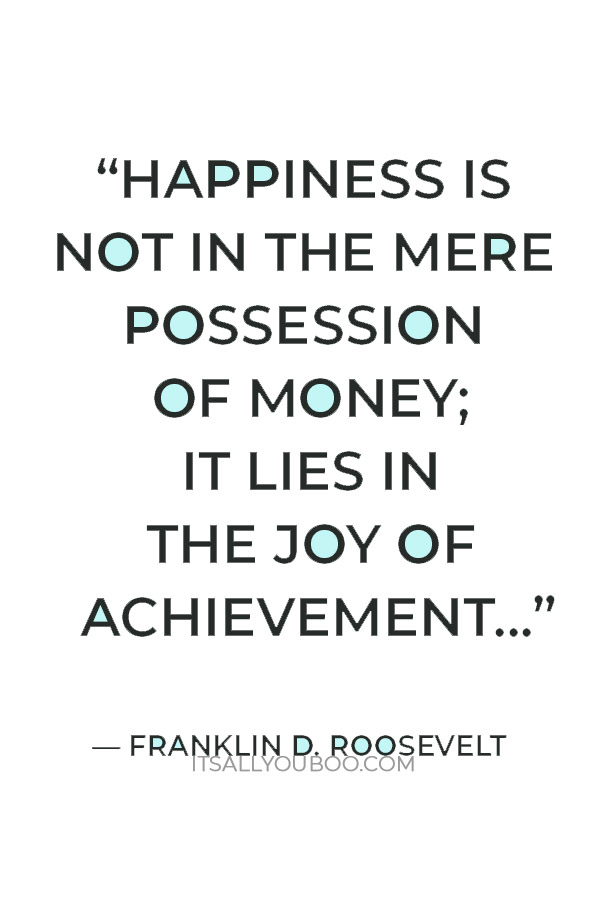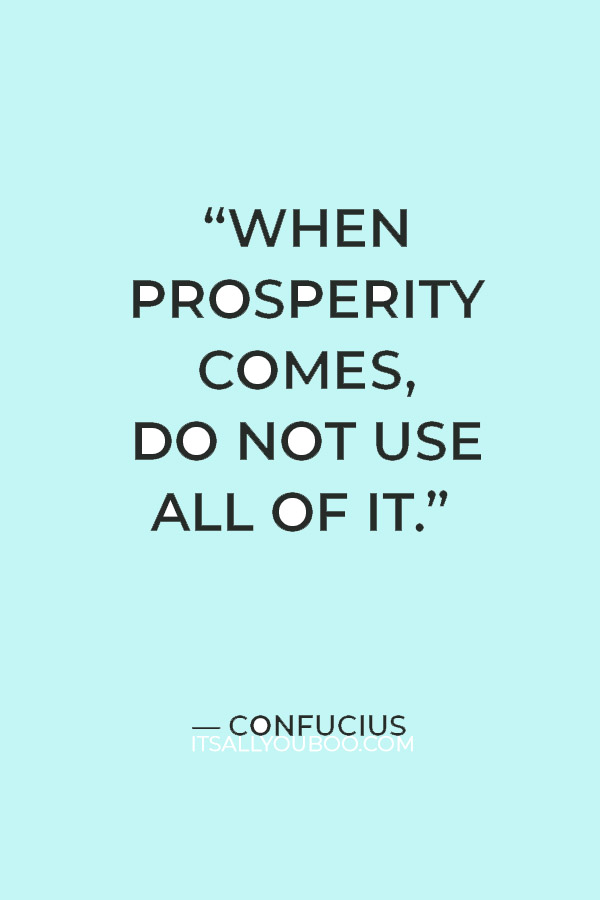Want to set financial new year’s resolutions? Looking for money saving new year’s resolutions?
As 2024 comes to an end, it’s time for our end-of-year reflection and New Year’s resolutions – including when it comes to our finances.
There’s no denying that money management is downright stressful. Bills, taxes, mortgages, spreadsheets, and budgets can be overwhelming to the point where you just want to put down the calculator and pretend they don’t exist.
To top that off, most people believe that they are not where they “should” be when it comes to their finances.
As scary and stressful as money management can be, there are many easy and approachable ways to improve your finances. It all starts with establishing New Year’s financial resolutions and improving your personal finance habits.
If you want to improve your finances next year, establishing New Year’s financial resolutions is the first place to start. Once you create a list of financial goals, you can begin taking action on budgeting better, stopping bad spending habits, and committing to your overall money goals.


Keep in mind: your money journey will be different from everyone else’s. It’s important to customize these goals to fit your specific financial needs.
We have broken down these New Year’s financial resolutions into two categories: creative ways to save money and strategies to increase your income. Ready to stress less and spend less next year?
Here are our financial tips for 2025 to help you achieve your new financial goa.s.
THIS POST MAY CONTAIN AFFILIATE LINKS.
IF YOU MAKE A PURCHASE FROM THESE LINKS, I MAY EARN A SMALL COMMISSION.
CLICK HERE FOR MY FULL DISCLAIMER STATEMENT.
Money-Saving New Years Resolutions
#1. Create a Budget
When crafting New Year’s financial resolutions for the coming year, creating (and following) a monthly budget is the first place to start. When designing your budget, begin with the fixed expenses that you have to pay every month. Fixed expenses include housing, utilities, groceries, insurance such as auto insurance or life insurance policies, healthcare, and any other monthly bills.
If you have any debt payments, such as a home equity loan or student loans that you want to account for, certainly include those in your budget as well. Once you nail down your fixed expenses, you can then account for miscellaneous expenses such as big events, travel, shopping, dining out, entertainment, etc.
A good rule of thumb is to use the 50/30/20 budget for smart money management. This means dedicating 50% of your income to necessities, 30% to wants, and 20% to savings—helping you avoid over-reliance on high-interest credit card debt.
If you don’t want to do all the heavy lifting of budgeting yourself, you don’t have to! Many budget apps can track your spending and expenses for you, including PocketGuard and Mint.
👉🏽 RELATED POST: Unique New Year's Resolutions

#2. Share Subscriptions
Monthly subscriptions and memberships have become the money drainer of the 21st century. While most people subscribe to at least one entertainment streaming service, there are also subscriptions for athletic wear, cosmetics, vitamins, and even meal services.
Signing up for a free 30-day trial and forgetting to cancel it has become a tale as old as time. In 2025, one of your financial resolutions should be to review your current monthly subscriptions. Go through each one and ask yourself – do I still use this? If the answer is no, promptly unsubscribe.
If you want to go the extra mile, consider which of your subscriptions or monthly memberships you can share with others. Try splitting your Netflix account with a coworker, Spotify with your family, or a Costco membership with a friend. For the most part, splitting the membership cost gets you the same advantages but for a lower price.
#3. Cut Down on Small Expenses
Sometimes it’s the little things that add up to make the biggest impact on your finances.
For example, if part of your morning ritual is purchasing a latte from your neighborhood coffee shop, those costs add up over time. If that coffee has a $3.50 price tag, that might seem like a minor dent in your wallet. But that daily cost racks up to $1277.5 over a whole year.
Instead of treating yourself to a pricey latte every single day, try to brew coffee at home whenever you have the time. Cutting down on that daily cup of coffee could make the difference between you treating yourself to an end-of-year vacation or not. It’s one of the ways I stopped spending money!
The most important question to ask yourself when cutting out a part of your budget is, “where do I overspend?” Whether it’s on dining out or Uber rides, make one of your New Year’s financial resolutions revolve around cutting down on that specific splurge, even if it’s just by $25 or $50 a month.
👉🏽 RELATED POST: How to Have Better Spending Habits

#4. Start an Emergency Fund
In a poll conducted by Bankrate, researchers discovered that more than half of Americans, 51%, don’t have three months’ worth of expenses covered in an emergency fund. 1 in 4 Americans has no emergency fund at all.
If you fit into either camp, one of your first orders of business in the New Year should be to start (or grow) an emergency fund. The last thing you want is to find yourself in a situation of unexpected unemployment or facing an exorbitant medical bill with no money in savings or a money market account to cover necessary purchases.
When setting up your rainy-day fund, most experts recommend saving up at least six months of living expenses and more if possible. Keep in mind, that an emergency fund does not need to be set up overnight. Start small, consider a money market or high-yield savings account, and continue to chip away at your savings over time.
#5. Improve Your Credit Score
First things first: what is a “good” credit score? A credit score ranges between 300 and 850 points. While a “good” score depends on the credit scoring model, for the most part, credit scores from 580 to 669 are considered fair; 670 to 739 are considered good; 740 to 799 are considered very good; and 800 and up are considered excellent, as noted by Equifax.
While a credit score may be just a number, it does play an important role in the financial services you need. Your credit score can factor into car insurance rates, housing applications, and how much interest is paid on a loan.
There are many ways to increase your credit score, including paying your bills fully and on time, paying off debt, cutting back on spending, using a balance transfer credit card to reduce interest, and limiting how many new credit card lines that you open.
If you want to learn more about your credit score, consider taking a closer look at your credit report. This is the best way to gain a better understanding of your spending and the ways you can boost your score.
👉🏽 RELATED POST: 12 Financial Planning Principles

#6. Increase Your Retirement Savings
No matter how old you are, it’s never too soon to start saving for retirement. If you are a young twenty-something who has just graduated from college, retirement probably feels like a lifetime away. But the truth is, the sooner you start saving, the more financially secure you will be when retirement rolls around.
If you are employed, reach out to your manager or the human resources department at your company to see if a 401k plan is offered by your employer. One of the perks of 401k is that employers will frequently match a percentage of your contributions. This is essentially free money and is well worth you contributing enough to get the full match.
If your employer does not offer a 401k or you are self-employed, there are plenty of other options to save for retirement. Anyone can open an individual retirement account (IRA) and is another great option to invest in your future. If you have not started either a 401k, an IRA, or another retirement savings account, make sure this is on your list of New Year’s financial resolutions.
#7. Pay Off Credit Card Debt
If you are dealing with credit card debt, you are not alone. According to a recent poll conducted by Go Banking Rates, 30% of Americans have between $1001 and $5000 in credit card debt, 15% have $5001 or more in credit card debt, and about 6% have more than $10,000 in credit card debt.
Carrying an exorbitant credit card balance means spending tons of money on interest, which can be reduced through personal loans or other financial tools. By chipping away at your current balance, you are ditching debt and the interest that adds up against you.
When it comes to paying off debt, it’s important to have a specific goal. Otherwise, there’s a good chance your New Year’s financial resolution will slowly peter out. Set a specific monthly goal for yourself regarding how much debt you want to pay off, and consider options like debt consolidation loans to simplify repayments.
#8. Search for Scholarships
If you are a student or the parent of a rising high school senior, scholarships are a great way to help finance a college education. Unlike student loans, scholarships are free money that never needs to be paid back, making the stressful application process worth the effort.
While scholarships are certainly competitive, there are still 1.7 million private scholarships and fellowships are awarded every year for students with a wide range of backgrounds and interests, as noted by Bold.org. That means there are scholarships out there for every type of student from women who want to major in STEM to students coming from military families.
Whether you are searching for high school scholarships or graduate school scholarships, there are numerous awards out there to take advantage of.
👉🏽 RELATED POST: Steps to Building Wealth from Nothing

Money Making New Year’s Resolutions
#9. Start Investing
Investing should be at the top of your New Year’s financial resolution checklist, but remember, investing involves risk, so plan carefully. While investing may not be the easiest goal to tackle, it is one of the best ways to grow your bank account.
If you are worried that you don’t have the money to start investing or the time to figure out how to do it, don’t despair! While it’s certainly possible to invest without the assistance of a financial advisor, many people opt to get help when considering options like mutual funds and stocks from those well-versed in the investment process.
A financial planner or advisor will help you make investment decisions based on your financial situation and the amount of risk that you are willing to take. Robo-advisors also provide clients with digital financial advice based on algorithms conducted through online surveys. The robo-advisor will then start investing your money for you based on the data they gather.
10. Get a Promotion
If you’ve been at your job for some time, 2025 might be the year when your New Year’s financial resolution is to finally get the promotion you deserve. Unfortunately, promotions don’t typically fall into people’s laps. Oftentimes you need to do more than simply show up to climb the corporate ladder.
When it comes to promotions, more power means more responsibility—and higher earning potential to help you manage rising interest rates. This means one of the best ways to show your boss that you are ready to take your job to the next level is by owning projects from start to finish and taking things off your manager’s plate.
Impressive independent work improves the lives of upper management, benefits the company, and puts you on the map. After doing the work, you should feel confident speaking with your boss about a promotion or a raise.
👉🏽 RELATED POST: New Year's Resolutions for College

#11. Consider What Else is Out There
While angling for a promotion might be an appropriate financial goal for some, for others, it might be time to set your sights elsewhere. It can be easy for us to get so caught up in our spending and saving habits that we lose sight of the bigger picture: our salaries.
Leaving a dead-end job and finding a higher-paying position might be the perfect New Year’s financial resolution for you to build your wealth.
If you are looking for a new job in the new year, consider seeking a position that offers remote work. Remote working allows you to save money on commuting costs and choose where you want to live based on the cost of living.
#12. Take Advantage of Credit Card Rewards
If you aren’t already doing this, a creative way to make a little extra money on the side is to maximize your credit card cashback, miles, or points rewards. As people with multiple credit cards already know, every credit card rewards different types of purchases.
Wallet Hub has a theory known as the island approach that helps consumers use their credit cards most cost-effectively and tactically possible. For example, you can use a rewards credit card for everyday purchases and a 0% APR card for balances that carry over month to month.
Or if you are going on a vacation next year, purchasing a Marriott credit card with a points reward system might be worth the investment. By utilizing the island method, you will be able to take full advantage of each one of your credit cards, rather than settling for mediocre benefits by using one credit card for every purchase.
👉🏽 RELATED POST: New Year's Resolution Quotes

#13. Get a Side Hustle
While saving money is undoubtedly important, you also don’t want to cut back on spending entirely. We all deserve to treat ourselves every once and a while, even if it’s just on a night out every week.
Rather than completely deny yourself of all things fun, try supplementing your monthly income with a side hustle i.e. start a small business. Whether that’s helping out at a farmer’s market on the weekends or doing some private tutoring, there’s a whole host of part-time businesses you can choose from based on your schedule and availability.
The money you make from your side gig can go towards vacations, self-care, or gifts for friends. Or even to help you figure out if you can afford to quit your job one day.
#14. Sell Old Items
Do you have clothes in your closet that don’t fit anymore? What about some old college textbooks? If you have a bunch of items that you’ve been waiting to get rid of, selling these possessions should be one of your New Year’s financial resolutions.
If you want to go the extra mile, consider hosting a yard sale! Whether you want to get rid of childhood toys, books, clothes, or furniture, what might be old junk to you could be exactly what someone else has been looking for at a discounted cost.
You could also use this as an excuse to declutter your home, and easily sell them with online apps like Facebook Marketplace, or eBay.

#15. Stick to Financial Goals
Last, but not least, it’s crucial to take action when it comes to your short-term and long-term financial goals. While it might be easy to come up with a list of how you want to manage your money in 2025, it’s much harder sticking to those resolutions and making them happen.
When it comes to New Year’s financial resolutions, it’s easy to overdo it by setting too many goals or making them too unattainable to achieve. All too often, people become deterred by their lack of progress and revert to their old money habits.
Rather than deprive yourself of everything you enjoy, pick a few of these fifteen goals to kick start the year with. By starting small and gradually becoming more ambitious with your goals, you are more likely to build a foundation for effective wealth management and financial success.
Get Your Simple Budget Spreadsheet
Ready to achieve your financial New Year’s resolutions? Great, your very first step is to create a budget! With the Simple Budget Spreadsheet, you’ll be able to track your expenses and savings It’s easy to use and compatible with Google Docs and Microsoft Excel.
I know finances can be stressful, and getting started can feel impossible, but I promise the peace of mind of knowing your finances are in order is priceless.
Once you have your budget, you can save more money, make more money, or even invest more money in the new year. You can even start building wealth in the new year!

What’s your New Year’s financial resolutions?
Last Updated on November 25, 2024







Martha -LifeShine Lane says
These are great tips and reminders! I really love the idea of sharing subscriptions, not something I’ve thought of before. I hope you’re having a great start to the new year:)
Martha
It's All You Boo says
Hi Martha!
Sharing subscriptions is a good one to start off your financial new years resolution. Happy New Year to you, too!
Mimi says
I’ve never heard of that 50%/30%/20% rule I need to try this for this year
It's All You Boo says
Hi Mimi,
Let us know how it goes once you’ve tried creating this 50/30/20 rule! Thanks for going through this financial new years resolution post.
Megan says
Great ideas! I love the idea of sharing a subscription. I totally need to share prime with a neighbor or something, because when I don’t have Prime, I miss it!
It's All You Boo says
Hi Megan,
Sharing a subscription really does save you a lot! I’m glad you love this post about financial new years resolution.
Heather Castillo says
These are all great. We have decided this year will be the year we will invest.
It's All You Boo says
Hi Heather,
I’m happy you love this ‘financial new years resolution’ post. It’s never too late to start investing!
Aditi says
This is definitely something I had to read and follow too, amazing tips and guess these would help me in planning my finances well. Thanks for sharing.
It's All You Boo says
Hi Aditi,
I’m glad you love this post about financial new years resolution! Share this with your friends and family so they too can grab something from all the tips here!
Shar says
This is interesting! Financial resolutions and goals are crucial to ensuring a better future. It’s a priority.
It's All You Boo says
Hi Shar,
Having financial resolutions and goals will really help you build a better future. I’m happy you find this “financial new years resolution” post interesting!
Angela says
Excellent financial tips. As a small business owner we need to set money goals and keep them.
It's All You Boo says
Hi Angela,
So true! We all need to learn how to keep some if not all of our financial new years resolutions! Glad you love this post!
Jen @ JENRON DESIGNS says
Creating a budget is such an overlooked goal for the new year, but it is important if you want to succeed for your endeavors.
It's All You Boo says
Hi Jen,
I believe we should always start with creating a budget and having all the other financial new years resolution in the list follow. Thanks for going through the post!
Nishtha says
These are all great resolutions for saving and growing money this new year. #9 is so important as investing may help you in long term
It's All You Boo says
Hi Nishta,
I’m happy you love this post about financial new years resolutions! And true, investing will really come in handy in the future.
rachel says
I am definitely working on this this year. Especially getting my credit score up!
It's All You Boo says
Hi Rachel!
Go ahead and work on it and let us know how it goes! These financial new years resolutions will give you head start.
Steve Martin says
This is a really awesome and helpful article for me. I really appreciate your work for providing such useful information, thank you so much!
It's All You Boo says
Happy to provide useful information to everyone! Thanks Steve!